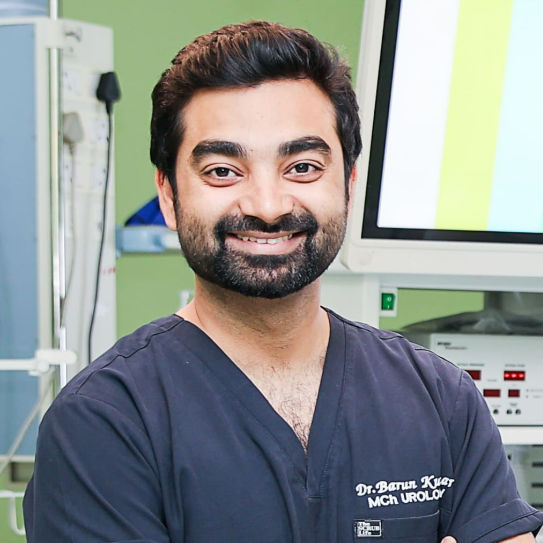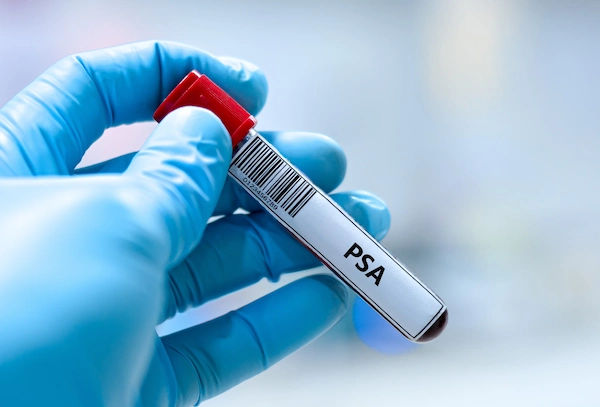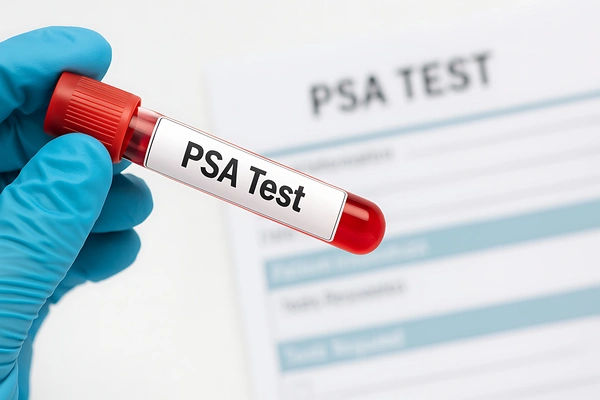PSA Test Overview and Guidelines
Learn about the PSA test, its purpose in detecting prostate health issues, guidelines for testing, and how results are interpreted for early detection and management.

Written by Dr. Dhankecha Mayank Dineshbhai
Reviewed by Dr. Vasanthasree Nair MBBS
Last updated on 14th Aug, 2025

Introduction
If you or a loved one has been advised to take a Prostate-Specific Antigen (PSA) test, you might have questions about what it is, why it’s done, and what the results mean. This article will guide you through everything you need to know in simple, easy-to-understand terms.
What is a PSA Test?
The PSA test is a blood test that measures the level of prostate-specific antigen, a protein produced by the prostate gland. While PSA is normally present in small amounts in the blood, higher levels may indicate prostate-related conditions, including enlarged prostate (BPH), inflammation, infection, or prostate cancer.
Consult a Urologist for the best advice
Why is the PSA Test Done?
The PSA test is primarily used for:
1. Screening for Prostate Cancer – Helps detect early signs, especially in men over 50 or those with risk factors.
2. Monitoring Prostate Health – For men already diagnosed with prostate conditions to track disease progression.
3. Assessing Treatment Effectiveness – To check if treatments (like surgery or radiation) are working.
Who Should Get a PSA Test?
While the PSA test is useful, not everyone needs it. Doctors usually recommend it for:
- Men aged 50 and above (earlier if at high risk).
- Men with a family history of prostate cancer.
- African-American men, who have a higher risk.
- Men experiencing urinary symptoms (frequent urination, weak flow, blood in urine).
However, testing should always be discussed with a doctor, as unnecessary tests can lead to false alarms.
Understanding PSA Test Results
PSA levels are measured in nanograms per millilitre (ng/mL). Here’s a general guideline:
- Below 4 ng/mL – Usually considered normal.
- Between 4-10 ng/mL – May suggest an enlarged prostate or infection; further tests may be needed.
- Above 10 ng/mL – Higher risk of prostate cancer; biopsy may be recommended.
Important Note: A high PSA does not always mean cancer. Other factors like age, prostate size, infections, or recent medical procedures can also raise PSA levels.
What Can Affect PSA Levels?
Several factors can influence PSA readings:
- Age – PSA naturally increases with age.
- Prostate Conditions – BPH (enlarged prostate) or prostatitis (inflammation) can raise PSA.
- Medical Procedures – A recent prostate exam, biopsy, or catheter use may temporarily increase PSA.
- Medications – Some drugs (like finasteride) can lower PSA levels.
- Exercise & Sexual Activity – Vigorous exercise or ejaculation within 48 hours before the test may affect results.
Should You Get a PSA Test? Pros and Cons
Here are the key pros and cons to help you make an informed choice:
Pros:
- Early Detection – Can help catch prostate cancer early when treatment is most effective.
- Simple & Quick – Just a blood test with no major discomfort.
Cons:
- False Positives – High PSA doesn’t always mean cancer, leading to unnecessary stress and biopsies.
- Overdiagnosis – Some slow-growing cancers may not need treatment, but testing can lead to overtreatment.
Discuss with your doctor whether the test is right for you based on your age, health, and risk factors.
Tips for Managing Prostate Health
While PSA testing is important, maintaining a healthy lifestyle can also support prostate health:
- Eat a Balanced Diet – Include tomatoes (lycopene), green tea, nuts, and fatty fish (rich in omega-3).
- Exercise Regularly – Helps maintain a healthy weight and reduces prostate cancer risk.
- Limit Alcohol & Smoking – Both can negatively impact prostate health.
- Stay Hydrated – Supports urinary function.
- Get Regular Check-ups – Especially if you have a family history of prostate issues.
When to See a Doctor
Consult a doctor if you experience:
- Frequent urination (especially at night).
- Pain or burning during urination.
- Blood in urine or semen.
- Erectile dysfunction or pelvic discomfort.
If your PSA levels are high, your doctor may recommend additional tests like a digital rectal exam (DRE), MRI, or biopsy for further evaluation.
Get Your Health Assessed
Final Thoughts
The PSA test is a valuable tool for monitoring prostate health, but it’s not perfect. Understanding your results and discussing them with a doctor is key to making informed decisions. If you’re over 50 or at higher risk, consider getting tested; early detection can save lives.
Consult a Urologist for the best advice
Consult a Urologist for the best advice

Dr. Sateesh Marriwada
Urologist
17 Years • MBBS, MS (General Surgery), Mch ( Genito Urinary Surgery)
Visakhapatnam
Apollo 24|7 Clinic - Andhra Pradesh, Visakhapatnam

Dr Tharaka Mourya Nutulapati
Urologist
7 Years • MBBS, MS (General Surgery), Mch ( Urology)
Visakhapatnam
Apollo 24|7 Clinic - Andhra Pradesh, Visakhapatnam

Dr. Prabir Basu
Urologist
19 Years • MBBS, MS General Surgery, DNB Genito-Urinary Surgery
Jodhpur Park
Dr. Prabir Basu urology clinic, Jodhpur Park
(200+ Patients)

Dr. Gaurab Dasgupta
Urologist
14 Years • MBBS, MS General Surgery, MCH Urology, FMAS
Kolkata
MCR SUPER SPECIALITY POLY CLINIC & PATHOLOGY, Kolkata

Dr. Barun Kumar
Urologist
12 Years • MBBS MS MCH UROLOGY DNB GENITOURINARY SURGERY
Guwahati
Apollo Clinic Guwahati, Guwahati
Consult a Urologist for the best advice

Dr. Sateesh Marriwada
Urologist
17 Years • MBBS, MS (General Surgery), Mch ( Genito Urinary Surgery)
Visakhapatnam
Apollo 24|7 Clinic - Andhra Pradesh, Visakhapatnam

Dr Tharaka Mourya Nutulapati
Urologist
7 Years • MBBS, MS (General Surgery), Mch ( Urology)
Visakhapatnam
Apollo 24|7 Clinic - Andhra Pradesh, Visakhapatnam

Dr. Prabir Basu
Urologist
19 Years • MBBS, MS General Surgery, DNB Genito-Urinary Surgery
Jodhpur Park
Dr. Prabir Basu urology clinic, Jodhpur Park
(200+ Patients)

Dr. Gaurab Dasgupta
Urologist
14 Years • MBBS, MS General Surgery, MCH Urology, FMAS
Kolkata
MCR SUPER SPECIALITY POLY CLINIC & PATHOLOGY, Kolkata

Dr. Barun Kumar
Urologist
12 Years • MBBS MS MCH UROLOGY DNB GENITOURINARY SURGERY
Guwahati
Apollo Clinic Guwahati, Guwahati




